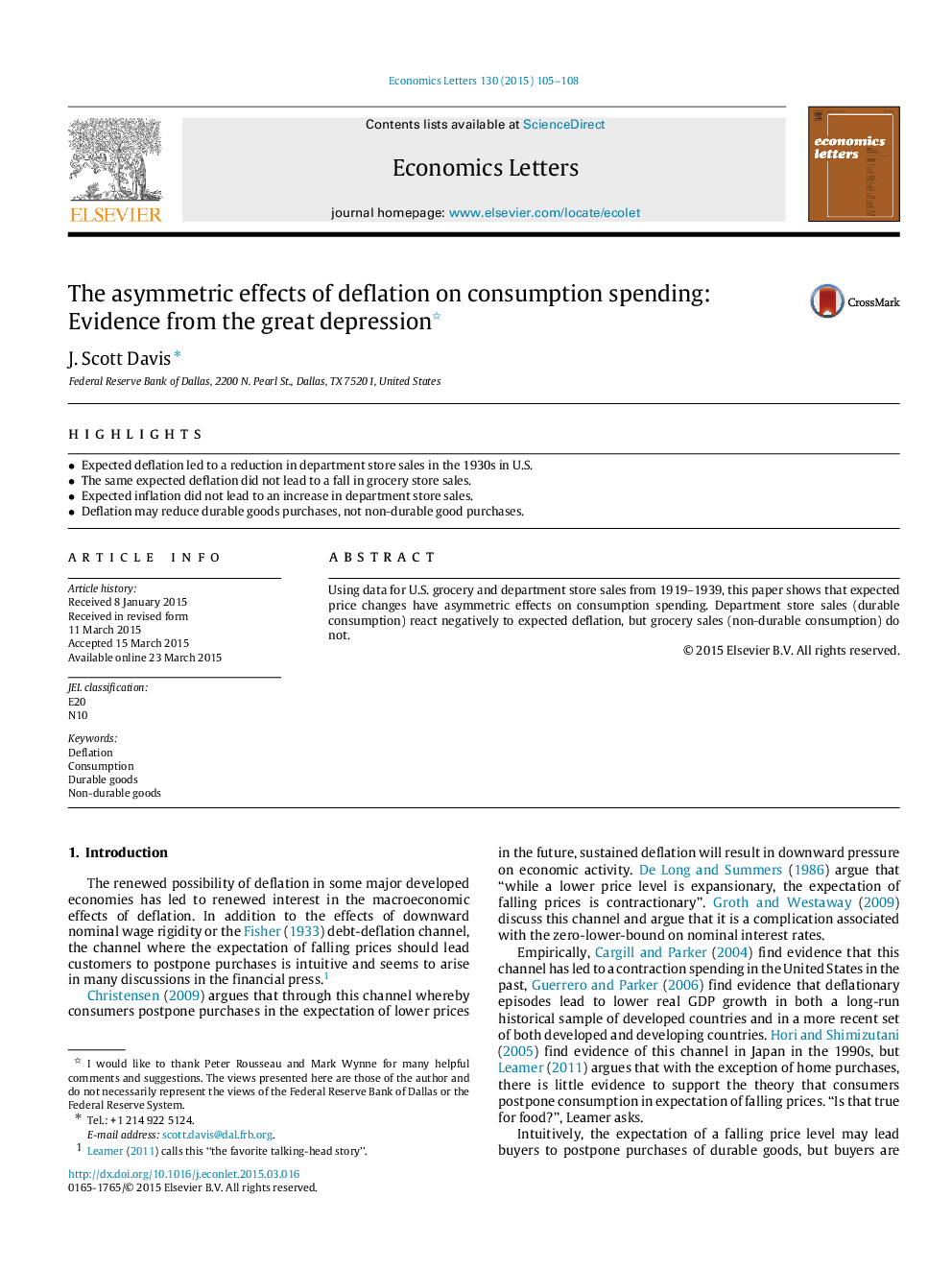| Article ID | Journal | Published Year | Pages | File Type |
|---|---|---|---|---|
| 5058728 | Economics Letters | 2015 | 4 Pages |
Abstract
â¢Expected deflation led to a reduction in department store sales in the 1930s in U.S.â¢The same expected deflation did not lead to a fall in grocery store sales.â¢Expected inflation did not lead to an increase in department store sales.â¢Deflation may reduce durable goods purchases, not non-durable good purchases.
Using data for U.S. grocery and department store sales from 1919-1939, this paper shows that expected price changes have asymmetric effects on consumption spending. Department store sales (durable consumption) react negatively to expected deflation, but grocery sales (non-durable consumption) do not.
Related Topics
Social Sciences and Humanities
Economics, Econometrics and Finance
Economics and Econometrics
Authors
J. Scott Davis,
